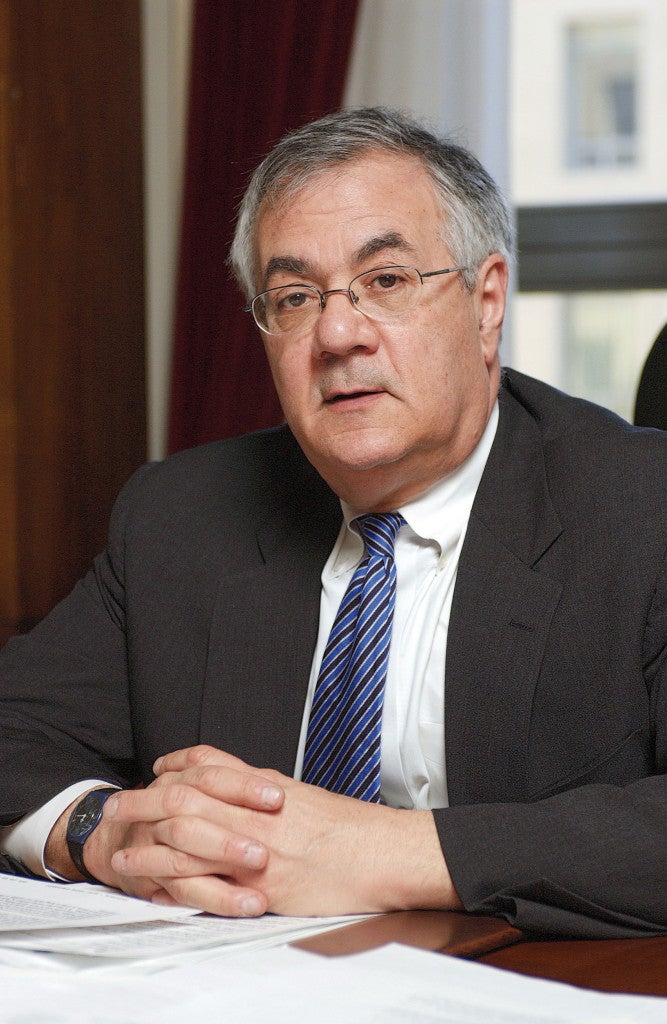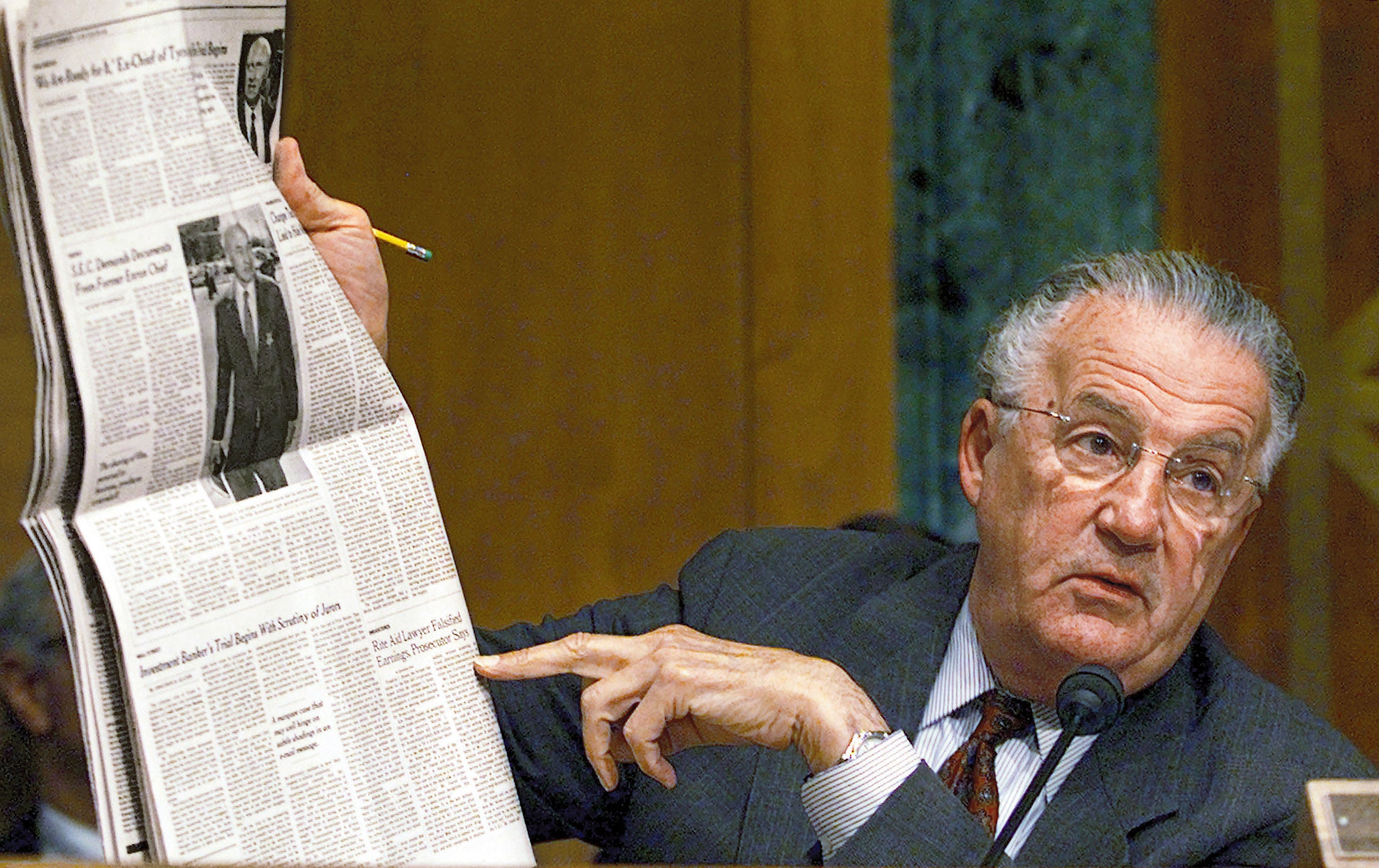Sarbanes makes his exit, but his law may be here to stay
A year ago, it looked as if the Sarbanes-Oxley Act might face a serious overhaul after its two principal authors, Rep. Michael Oxley (R-Ohio) and Sen. Paul Sarbanes ’60 (D-Md.), retired from Congress at the end of 2006.
Business groups complained that the accounting oversight requirements of the landmark law enacted in 2002 were too costly, and started lobbying Congress for changes.
They took aim at the law’s most controversial provision, Section 404, which requires companies to adopt financial reporting controls, submit to outside auditors and report annually on the effectiveness of those controls.
Many Washington observers predicted that the business community would gain an important new ally in rolling those requirements back, when Christopher Cox ’76 (’77) left Congress to become the new chairman of the U.S. Securities and Exchange Commission in 2005.

But as Sarbanes’ tenure in the Senate ended in December, the legislation bearing his name appeared on firmer ground. And he could largely thank Cox and fellow HLS alum Barney Frank ’77, who became chairman of the House Committee on Financial Services this year following the Democratic takeover of Congress.
Frank and his Senate counterpart, Connecticut Democrat Christopher J. Dodd, the new Banking Committee chairman, have both indicated they believe legislation isn’t needed to address concerns that the law’s auditing requirements are too burdensome on small companies.
“I had already told Chris Cox and Mark Olson of the Public Company Accounting Oversight Board that we hoped they would use their statutory authority to reduce the amount that companies have to certify under Sarbanes-Oxley,” Frank told reporters in December. “I think there’s a general consensus: You can preserve the principles of Sarbanes-Oxley without exempting anybody, but by making it much less burdensome.”

Cox has shown himself less intent on deregulating than some observers predicted. During testimony before Congress in September 2006, he hinted that he didn’t believe any major overhaul of the law was necessary. “The Act is not perfect in every respect,” Cox told the House Committee on Financial Services. “But the vast majority of its provisions are net contributors to the nation’s economic health.”
That tempered response was reflected in December, with the announcement of modest proposed new rule changes by the SEC and the Public Company Accounting Oversight Board, the independent agency created by Sarbanes-Oxley to be a watchdog of the accounting industry. In less than a week, both the SEC and PCAOB proposed looser interpretations of how the auditing provision should be applied to smaller companies.
Business groups, which had pushed for broader exemptions for smaller businesses, nonetheless reacted positively to the announcements. Consumer groups suggested that the changes could further dampen the rush for legislation.
But that doesn’t mean corporate governance won’t be on Congress’ agenda this year. Frank is expected to press the issue of excessive executive compensation. And observers predict that many of the recommendations of HLS Professor Hal Scott’s Committee on Capital Markets Regulation may wind up being introduced as legislation individually or collectively.
One wild card remains Democratic Sen. Charles E. Schumer ’74 of New York, who has blamed Sarbanes-Oxley for making American financial centers less competitive globally.
But as Sarbanes ended his Senate tenure, he seemed confident that investor pressure will help to ensure the survival of his signature accomplishment. Congress and regulators, he told the Bulletin, “seem to be working in the right direction” by “sustaining the objectives of the legislation, but if there are needless burdens, [doing] something about it.”
Entering the Senate chamber for one of his final votes, he asked a reporter, “Would you invest your money in a company that didn’t have financial controls?” He added that he won’t abandon his stake in the issue: “I don’t lose all my interest in public policy issues simply because I’m retiring from the Senate. This has been my life’s work, and I remain interested in it.”
